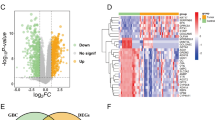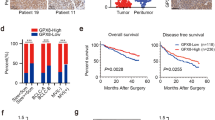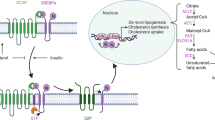Abstract
Aldo–keto reductase family one, member B10 (AKR1B10) has been reported to be involved in the tumorigenesis of various cancers. It has been reported that colorectal cancer is closely associated with chronic inflammation, but the underlying molecular mechanisms are still elusive. In our study, we evaluated the relationship between AKR1B10 expression and clinicopathological characteristics of colon cancer and showed that AKR1B10 expression was significantly correlated with the T stage and clinical stage of colon cancer. Knockdown of AKR1B10 significantly decreased the expression of the inflammatory cytokines IL1α and IL6 induced by lipopolysaccharide by inhibiting the NF-κB signaling pathway. Furthermore, AKR1B10 depends on its reductase activity to affect the NF-κB signaling pathway and subsequently affect the production of inflammatory cytokines. In addition, knockdown of AKR1B10 effectively reduced cell proliferation and clonogenic growth, indicating the biological role of AKR1B10 in colon cancer. Together, our findings provide important insights into a previously unrecognized role of AKR1B10 in colon cancer.





Similar content being viewed by others
Data availability
All data generated or analyzed during this study are included in this published article.
References
Adam R, Haller DG, Poston G, Raoul JL, Spano JP, Tabernero J, Van Cutsem E (2010) Toward optimized front-line therapeutic strategies in patients with metastatic colorectal cancer–an expert review from the International Congress on Anti-Cancer Treatment (ICACT) 2009. Ann Oncol 21:1579–1584. https://doi.org/10.1093/annonc/mdq043
Arnold M, Sierra MS, Laversanne M, Soerjomataram I, Jemal A, Bray F (2017) Global patterns and trends in colorectal cancer incidence and mortality. Gut 66:683–691. https://doi.org/10.1136/gutjnl-2015-310912
Baldwin AS Jr (1996) The NF-kappa B and I kappa B proteins: new discoveries and insights. Annu Rev Immunol 14:649–683. https://doi.org/10.1146/annurev.immunol.14.1.649
Bersudsky M, Luski L, Fishman D, White RM, Ziv-Sokolovskaya N, Dotan S, Rider P, Kaplanov I, Aychek T, Dinarello CA, Apte RN, Voronov E (2014) Non-redundant properties of IL-1α and IL-1β during acute colon inflammation in mice. Gut 63:598–609. https://doi.org/10.1136/gutjnl-2012-303329
Brough D, Denes A (2015) Interleukin-1α and brain inflammation. IUBMB Life 67:323–330. https://doi.org/10.1002/iub.1377
Chung YT, Matkowskyj KA, Li H, Bai H, Zhang W, Tsao MS, Liao J, Yang GY (2012) Overexpression and oncogenic function of aldo-keto reductase family 1B10 (AKR1B10) in pancreatic carcinoma. Mod Pathol 25:758–766. https://doi.org/10.1038/modpathol.2011.191
Dai Y, Wilson G, Qiao L (2014) Colon Cancer Molecular and Targeted Experimental Therapy. In: Schwab M (ed) Encyclopedia of Cancer. Springer, Heidelberg
Dong Y, Richards JA, Gupta R, Aung PP, Emley A, Kluger Y, Dogra SK, Mahalingam M, Wajapeyee N (2014) PTEN functions as a melanoma tumor suppressor by promoting host immune response. Oncogene 33:4632–4642. https://doi.org/10.1038/onc.2013.409
Eberhardt JM, Kiran RP, Lavery IC (2009) The impact of anastomotic leak and intra-abdominal abscess on cancer-related outcomes after resection for colorectal cancer: a case control study. Dis Colon Rectum 52:380–386. https://doi.org/10.1007/DCR.0b013e31819ad488
Freigang S, Ampenberger F, Weiss A, Kanneganti TD, Iwakura Y, Hersberger M, Kopf M (2013) Fatty acid-induced mitochondrial uncoupling elicits inflammasome-independent IL-1α and sterile vascular inflammation in atherosclerosis. Nat Immunol 14:1045–1053. https://doi.org/10.1038/ni.2704
Gallego O, Ruiz FX, Ardèvol A, Domínguez M, Alvarez R, de Lera AR, Rovira C, Farrés J, Fita I, Parés X (2007) Structural basis for the high all-trans-retinaldehyde reductase activity of the tumor marker AKR1B10. Proc Natl Acad Sci U S A 104:20764–20769. https://doi.org/10.1073/pnas.0705659105
Gout S, Huot J (2008) Role of cancer microenvironment in metastasis: focus on colon cancer. Cancer Microenviron 1:69–83. https://doi.org/10.1007/s12307-008-0007-2
Hart JR, Liao L, Yates JR 3rd, Vogt PK (2011) Essential role of Stat3 in PI3K-induced oncogenic transformation. Proc Natl Acad Sci U S A 108:13247–13252. https://doi.org/10.1073/pnas.1110486108
Hayden MS, Ghosh S (2008) Shared principles in NF-kappaB signaling. Cell 132:344–362. https://doi.org/10.1016/j.cell.2008.01.020
Heinrich PC, Behrmann I, Haan S, Hermanns HM, Müller-Newen G, Schaper F (2003) Principles of interleukin (IL)-6-type cytokine signalling and its regulation. Biochem J 374:1–20. https://doi.org/10.1042/BJ20030407
Lawrence T (2009) The nuclear factor NF-kappaB pathway in inflammation. Cold Spring Harb Perspect Biol 1:a001651. https://doi.org/10.1101/cshperspect.a001651
Liu W, Fan Z, Han Y, Xu L, Wang M, Zhang D, Mao Y, Li J, Wang H (2015) Activation of NF-κB signaling pathway in HSV-1-induced mouse facial palsy: possible relation to therapeutic effect of glucocorticoids. Neuroscience 289:251–261. https://doi.org/10.1016/j.neuroscience.2014.12.062
Ma J, Luo DX, Huang C, Shen Y, Bu Y, Markwell S, Gao J, Liu J, Zu X, Cao Z, Gao Z, Lu F, Liao DF, Cao D (2012) AKR1B10 overexpression in breast cancer: association with tumor size, lymph node metastasis and patient survival and its potential as a novel serum marker. Int J Cancer 131:E862–E871. https://doi.org/10.1002/ijc.27618
Malik A, Kanneganti TD (2018) Function and regulation of IL-1α in inflammatory diseases and cancer. Immunol Rev 281:124–137. https://doi.org/10.1111/imr.12615
Nelson H, Petrelli N, Carlin A, Couture J, Fleshman J, Guillem J, Miedema B, Ota D, Sargent D (2001) Guidelines 2000 for colon and rectal cancer surgery. J Natl Cancer Inst 93:583–596. https://doi.org/10.1093/jnci/93.8.583
Nishinaka T, Miura T, Okumura M, Nakao F, Nakamura H, Terada T (2011) Regulation of aldo-keto reductase AKR1B10 gene expression: involvement of transcription factor Nrf2. Chem Biol Interact 191:185–191. https://doi.org/10.1016/j.cbi.2011.01.026
Ohashi T, Idogawa M, Sasaki Y, Suzuki H, Tokino T (2013) AKR1B10, a transcriptional target of p53, is downregulated in colorectal cancers associated with poor prognosis. Mol Cancer Res 11:1554–1563. https://doi.org/10.1158/1541-7786.MCR-13-0330-T
Ozawa Y, Amano Y, Kanata K, Hasegwa H, Matsui T, Kakutani T, Koyauchi T, Tanahashi M, Niwa H, Yokomura K, Suda T (2019) Impact of early inflammatory cytokine elevation after commencement of PD-1 inhibitors to predict efficacy in patients with non-small cell lung cancer. Med Oncol 36:33. https://doi.org/10.1007/s12032-019-1255-3
Penning TM (2015) The aldo-keto reductases (AKRs): overview. Chem Biol Interact 234:236–246. https://doi.org/10.1016/j.cbi.2014.09.024
Rakhesh M, Cate M, Vijay R, Shrikant A, Shanjana A (2012) A TLR4-interacting peptide inhibits lipopolysaccharide-stimulated inflammatory responses, migration and invasion of colon cancer SW480 cells. Oncoimmunology 1:1495–1506. https://doi.org/10.4161/onci.22089
Sato S, Genda T, Ichida T, Murata A, Tsuzura H, Narita Y, Kanemitsu Y, Ishikawa S, Kikuchi T, Mori M, Hirano K, Iijima K, Wada R, Nagahara A, Watanabe S (2016) Impact of aldo-keto reductase family 1 member B10 on the risk of hepatitis C virus-related hepatocellular carcinoma. J Gastroenterol Hepatol 31:1315–1322. https://doi.org/10.1111/jgh.13295
Szymanowska-Narloch A, Jassem E, Skrzypski M, Muley T, Meister M, Dienemann H, Taron M, Rosell R, Rzepko R, Jarząb M, Marjański T, Pawłowski R, Rzyman W, Jassem J (2013) Molecular profiles of non-small cell lung cancers in cigarette smoking and never-smoking patients. Adv Med Sci 58(2):196–206. https://doi.org/10.2478/ams-2013-0025
Tannahill GM, Curtis AM, Adamik J, Palsson-McDermott EM, McGettrick AF, Goel G, Frezza C, Bernard NJ, Kelly B, Foley NH, Zheng L, Gardet A, Tong Z, Jany SS, Corr SC, Haneklaus M, Caffrey BE, Pierce K, Walmsley S, Beasley FC, Cummins E, Nizet V, Whyte M, Taylor CT, Lin H, Masters SL, Gottlieb E, Kelly VP, Clish C, Auron PE, Xavier RJ, O’Neill LA (2013) Succinate is an inflammatory signal that induces IL-1β through HIF-1α. Nature 496:238–242. https://doi.org/10.1038/nature11986
Terzić J, Grivennikov S, Karin E, Karin M (2010) Inflammation and colon cancer. Gastroenterology 138:2101-2114.e5. https://doi.org/10.1053/j.gastro.2010.01.058
Wang C, Yan R, Luo D, Watabe K, Liao DF, Cao D (2009) Aldo–keto reductase family 1 member B10 promotes cell survival by regulating lipid synthesis and eliminating carbonyls. J Biol Chem 284:26742–26748. https://doi.org/10.1074/jbc.M109.022897
Wang R, Wang G, Ricard MJ, Ferris B, Strulovici-Barel Y, Salit J, Hackett NR, Gudas LJ, Crystal RG (2010) Smoking-induced upregulation of AKR1B10 expression in the airway epithelium of healthy individuals. Chest 13:1402–1410. https://doi.org/10.1378/chest.09-2634
Wang YY, Qi LN, Zhong JH, Qin HG, Ye JZ, Lu SD, Ma L, Xiang BD, Li LQ, You XM (2017) High expression of AKR1B10 predicts low risk of early tumor recurrence in patients with hepatitis B virus-related hepatocellular carcinoma. Sci Rep 7:42199. https://doi.org/10.1038/srep42199
Yang P, Li Z, Li H, Lu Y, Wu H, Li Z (2015) Pyruvate kinase M2 accelerates pro-inflammatory cytokine secretion and cell proliferation induced by lipopolysaccharide in colorectal cancer. Cell Signal 27:1525–1532. https://doi.org/10.1016/j.cellsig.2015.02.032
Zu X, Yan R, Pan J, Zhong L, Cao Y, Ma J, Cai C, Huang D, Liu J, Chung FL, Liao DF, Cao D (2017) Aldo-keto reductase 1B10 protects human colon cells from DNA damage induced by electrophilic carbonyl compounds. Mol Carcinog 56:118–129. https://doi.org/10.1002/mc.22477
Acknowledgements
None.
Funding
This work was supported by the National Basic Research Program of China (973 Program 2015CB553800), the National Natural Science Foundation of China (81773770), the special fund for public welfare research institutes of Fujian Province (2018R1036-1, 2018R1036-3, 2019R1001-2). The funding bodies played no role in the design of the study and collection, analysis, and interpretation of data and in writing the manuscript.
Author information
Authors and Affiliations
Contributions
LWY, HZL, LWG, WSY and WT: conceived and designed the experiments. LC, SL, XPL, LTT and LZY: performed the experiments; WT, YJH and LFH contributed reagents/materials/analysis tools, funding acquisition. LC and SL: wrote the paper. All authors read and approved the final manuscript.
Corresponding authors
Ethics declarations
Conflict of interest
The authors declare that they have no conflict of interest.
Ethical approval
None.
Consent to participate
None.
Consent for publication
None.
Additional information
Publisher's Note
Springer Nature remains neutral with regard to jurisdictional claims in published maps and institutional affiliations.
Supplementary Information
Below is the link to the electronic supplementary material.
Rights and permissions
Springer Nature or its licensor holds exclusive rights to this article under a publishing agreement with the author(s) or other rightsholder(s); author self-archiving of the accepted manuscript version of this article is solely governed by the terms of such publishing agreement and applicable law.
About this article
Cite this article
Liu, C., Shi, L., Li, W. et al. AKR1B10 accelerates the production of proinflammatory cytokines via the NF-κB signaling pathway in colon cancer. J Mol Histol 53, 781–791 (2022). https://doi.org/10.1007/s10735-022-10093-7
Received:
Accepted:
Published:
Issue Date:
DOI: https://doi.org/10.1007/s10735-022-10093-7




